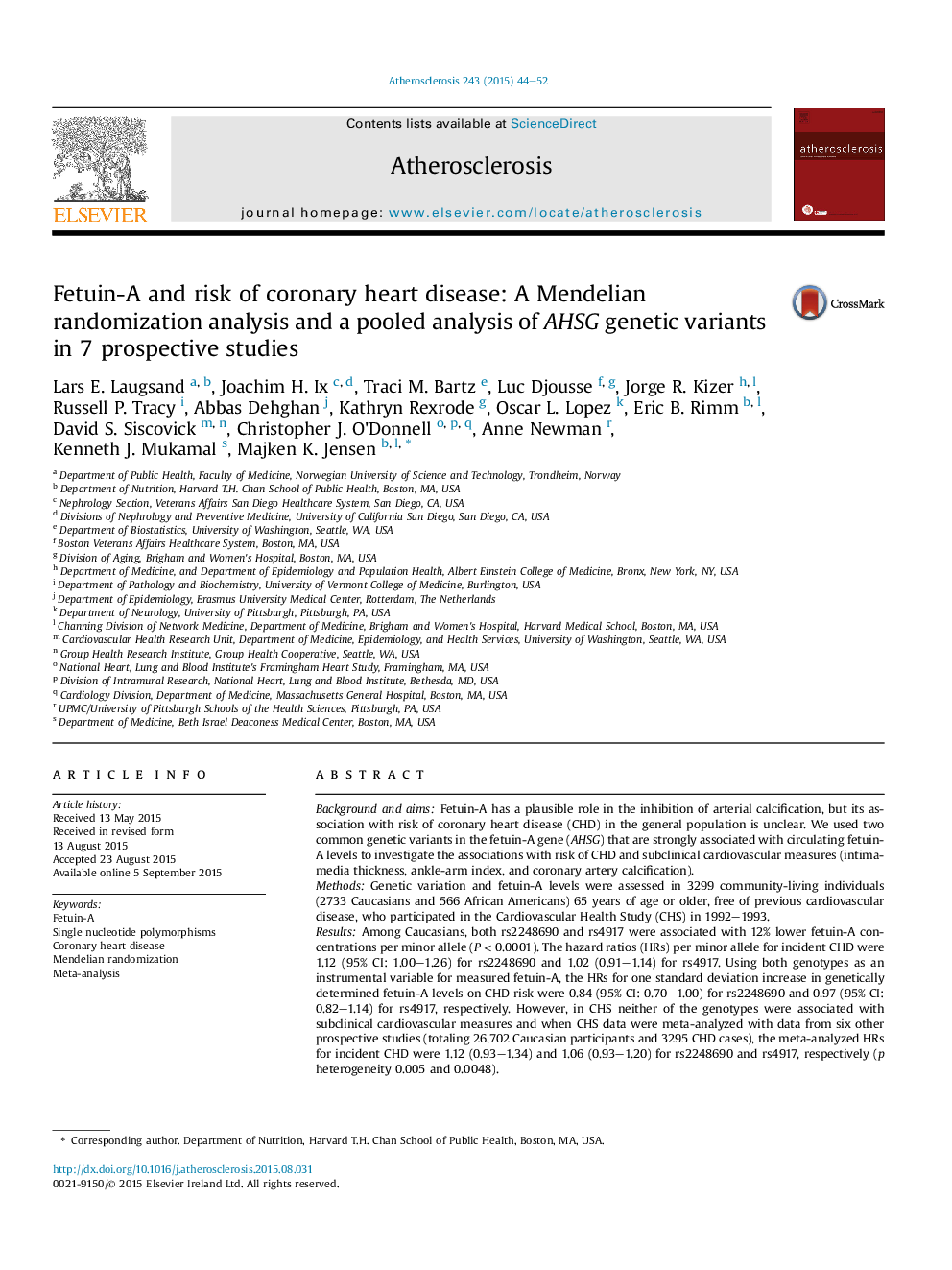| Article ID | Journal | Published Year | Pages | File Type |
|---|---|---|---|---|
| 5944183 | Atherosclerosis | 2015 | 9 Pages |
â¢High levels of fetuin-A are associated with less vascular calcification, insulin resistance and metabolic dysregulation.â¢Variants in the AHSG gene are associated with fetuin-A levels, but their associations with risk of CHD are inconsistent.â¢Formal instrumental variable analysis suggested an inverse association between plasma fetuin-A and risk of CHD.â¢More investigations are warranted to further examine the potential causal association of fetuin-A with CHD.
Background and aimsFetuin-A has a plausible role in the inhibition of arterial calcification, but its association with risk of coronary heart disease (CHD) in the general population is unclear. We used two common genetic variants in the fetuin-A gene (AHSG) that are strongly associated with circulating fetuin-A levels to investigate the associations with risk of CHD and subclinical cardiovascular measures (intima-media thickness, ankle-arm index, and coronary artery calcification).MethodsGenetic variation and fetuin-A levels were assessed in 3299 community-living individuals (2733 Caucasians and 566 African Americans) 65 years of age or older, free of previous cardiovascular disease, who participated in the Cardiovascular Health Study (CHS) in 1992-1993.ResultsAmong Caucasians, both rs2248690 and rs4917 were associated with 12% lower fetuin-A concentrations per minor allele (PÂ <Â 0.0001). The hazard ratios (HRs) per minor allele for incident CHD were 1.12 (95% CI: 1.00-1.26) for rs2248690 and 1.02 (0.91-1.14) for rs4917. Using both genotypes as an instrumental variable for measured fetuin-A, the HRs for one standard deviation increase in genetically determined fetuin-A levels on CHD risk were 0.84 (95% CI: 0.70-1.00) for rs2248690 and 0.97 (95% CI: 0.82-1.14) for rs4917, respectively. However, in CHS neither of the genotypes were associated with subclinical cardiovascular measures and when CHS data were meta-analyzed with data from six other prospective studies (totaling 26,702 Caucasian participants and 3295 CHD cases), the meta-analyzed HRs for incident CHD were 1.12 (0.93-1.34) and 1.06 (0.93-1.20) for rs2248690 and rs4917, respectively (p heterogeneity 0.005 and 0.0048).ConclusionCommon variants in the AHSG gene are strongly associated with fetuin-A levels, but their concurrent association with CHD risk in current prospective studies is inconsistent. Further investigation in studies with measured fetuin-A and AHSG variants is needed to clarify the potential causal association of fetuin-A with CHD risk.
